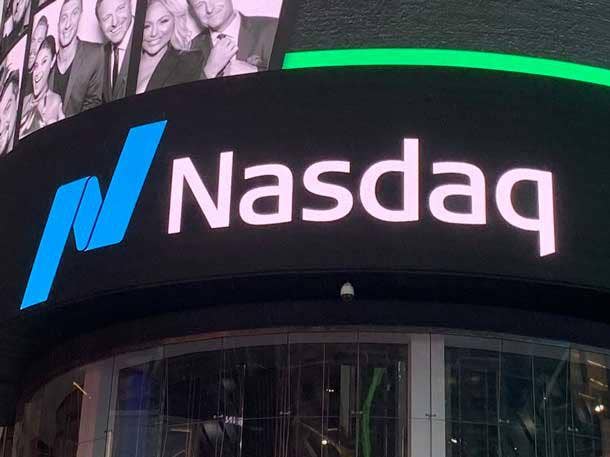Sumo Logic Files For First Cybersecurity IPO Of 2020
SaaS machine data analytics company Sumo Logic became the first cybersecurity vendor to pursue an IPO since the onset of the coronavirus pandemic, revealing surging sales but growing losses.

Data analytics vendor Sumo Logic Monday became the first cybersecurity company to pursue an initial public offering (IPO) since the onset of the COVID-19 pandemic.
Sumo Logic revealed surging sales but growing losses as the Redwood City, Calif.-based SaaS machine data analytics company looks to raise up to $100 million in a Nasdaq public offering. The company said it primarily sells subscriptions through its direct sales organization, and looks to channel partners to sell into international markets where Sumo Logic doesn’t have a direct presence.
“As part of our go-to-market strategy, we have developed a strong ecosystem of partners, including independent software vendors, distributors, resellers, managed service providers, and managed security service providers to help us expand in existing markets, as well as enter and grow in new markets,” Sumo Logic said in its 187-page filing Monday with the U.S. Securities and Exchange Commission (SEC).
[Related: Data Analytics Vendor Sumo Logic Raises $110M To Fuel More Growth]
Sumo Logic declined to comment on its S-1 filing. The company intends to use the net proceeds of its IPO for general corporate purposes, including working capital, operating expenses, and capital expenditures, as well as a potential acquisition or investment in businesses, products, services, or technologies. The company plans to be listed under the ticker symbol SUMO.
Last year was extremely active in the cybersecurity IPO space, with Cloudflare, CrowdStrike, Ping Identity and Tufin raising more than $1.43 billion combined from their respective public offerings. But there hasn’t been a single cybersecurity IPO since September 2019, with the onset of the coronavirus pandemic in March dulling the public market’s appetite for making big bets on emerging technologies.
Sumo Logic has experienced massive growth in recent years, according to its regulatory filing, with sales jumping to $155.1 million in its most recent fiscal year, which ended Jan. 31, up 49.6 percent from $103.6 million in fiscal 2019 and 128.6 percent from $67.8 million in fiscal 2018.
However, the company’s net losses surged to $92.1 million in fiscal 2020, some 92.8 percent worse than its net loss of $47.8 million in fiscal 2019 and 184.1 percent worse than its net loss of $32.4 million in fiscal 2018. Sumo Logic said it intends to continue investing significantly to grow its business in the near future rather than optimizing for profitability or cash flows.
“We expect our operating expenses to increase significantly over the next several years, as we continue to hire additional personnel, particularly in sales and marketing and research and development, [and] expand our operations and infrastructure,” the company said. “If we fail to increase our revenue to sufficiently offset the increases in our operating expenses, we will not be able to achieve or maintain profitability in the future.”
Sumo Logic said its more than 150 international channel partners increase the company’s global reach beyond existing foreign sales offices in London, Sydney and Tokyo. The company generated 17 percent of its revenue from outside the United States in the quarter ended April 30, up from 16 percent a year earlier, and said international expansion represents a significant growth opportunity for the company.
Channel partners have expanded Sumo Logic’s reach to additional sectors and industries, especially in international markets where the company doesn’t have a direct local presence, according to the vendor. Sumo Logic said its provides certain channel partners with specifics training and programs to assist them in selling access to the company’s platform.
Sumo Logic said it has also established reseller partnerships with cloud marketplaces such as the AWS marketplace, and intends to continue growing these relationships with other providers and partners. The company said on its website that it works with systems integrators and resellers like SHI, Optiv and Slalom, as well as managed service providers like Cloud Technology Partners, eSentire and Smartronix.
The company was founded in 2010, and has raised $340 million in six rounds of outside funding, according to Crunchbase. Sumo Logic said it employed 710 people across 13 countries as of July 31. Sumo Logic bought Austin-based cybersecurity intelligence vendor Jask Labs for $55.1 million in October 2019 to better protect modern applications, architectures and multi-cloud infrastructures.
The company had more than 2,100 customers as of April 30 ranging from small and medium-sized enterprises to businesses in the Fortune 500. Twenty-seven of Sumo Logic’s customers had annual recurring revenue of more than $1 million as of April 30, while 329 customers had annual recurring revenue of greater than $100,000. No client accounts for more than 10 percent of the company’s sales.
Sumo Logic President and CEO Ramin Sayar owns 4.7 percent of the company before the IPO, according to the S-1 filing, while Co-Founder and Chief Technology Officer Christian Beedgen holds a 3.4 percent stake in the company and Chief Revenue Officer Steven Fitz owns 1 percent of Sumo Logic.
Institutional investors hold a nearly 50 percent stake in the company, with entities affiliated with Greylock owning 22.6 percent, entities affiliated with Sapphire Ventures owning 7.1 percent, entities affiliated with Accel owning 6.8 percent, entities affiliated with Institutional Venture Partners owning 5.6 percent, and entities affiliated with DFJ owning 5.1 percent.
Greylock was a lead investor in the company’s $15 million Series B round in January 2012, Sapphire Ventures was a lead investor in the company’s $75 million Series F round in June 2017, Accel was a lead investor in the company’s $30 million Series C round in November 2012, and DFJ Growth was a lead investor in the company’s $80 million Series E round in June 2015.